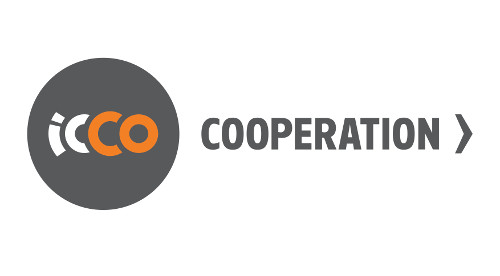Civil Society for the RtAF

The Right to Adequate Food is a powerful contribution to the food security debate, because it provides for a shift from just availability of food to also specific attention to access to food and utilisation of food (quality of food). In addition it provides for a shift form macro economy to individuals and households.
All literature about food insecurity state that the vast majority (80%) of hungry people are small food producers (landless labourers, smallholder farmers, fishers or pastoralists). This is extremely important to keep in mind. These people are rights holders, to whom duty bearers are accountable. Moreover these people are the main producers of food around the world and their productive contribution is essential to guarantee healthy diets and contribute to the solution to the world food problem 1.
Those deprived of their human right to food should be placed at the center of political struggle and policy considerations. This is to lead to the empowerment of formerly passive objects of benevolence of the rich and powerful. Human rights give rise to entitlements which shall in turn be regarded as enforceable claims against governments, overcoming hunger and malnutrition can no longer be considered as a matter of charity, but of social justice and state obligations
In general one can use the following strategies in a rights based approach:
|
Civil Society involvement at International Level
As indicated on Monitoring Realization of the RtAF the progressive realization of the Right to Adequate Food depends to a large extend on the capacity and commitment of civil society organizations to join forces and use the tools available to monitor efforts and results of states and hold them accountable.
In 2010 an inclusive Civil Society Mechanism was launched for the Intergovernmental Committee on World Food Security (CFS). The CFS itself was established, as a result of the food crisis of the 1970s upon recommendation from the 1974 World Food Conference, to serve as a forum for member States in the United Nations System for review and follow-up of policies concerning world food security. In 2009 CFS members agreed on a wide-ranging reform. During this process Member States recognized the right of Civil Society Organizations to “autonomously establish a global mechanism for food security and nutrition which will function as a facilitating body for CSO/NGOs consultation and participation in the CFS” 2. The CSM is reaching out to hundreds of CSOs in all continents3.
|
CSM Purpose The work of the CSM is facilitated by a small, neutral Secretariat which amongst other tasks, maintains the CSM website csm4cfs.org and can be contacted by email on their Contact Us page. |
Civil Society Involvement at Local Level
The mechanisms and initiatives at international level, as referred to above, should be based and contribute to concrete situations and results at local level.
Key Messages resulting from the Right to Adequate Food Approach
|
While at national level Governments are to integrate the Right to Adequate Food into the constitutions it is recommended that also at local level commitment towards the progressive realization of the RtAF is confirmed, documented and monitored. To this end the elaboration of a Food Charter could be an efficient tool.
| What is a Food Charter? A food charter is a document created by communities and/or local governments to help improve the food security of all of their citizens. It is created with the active participation of a wide variety of members of the community (families, farmers, fisher folk, community gardeners, educators, students, politicians, food producers and retailers, community health workers, food action agencies, local authorities). It identifies priorities and sets guidelines for action to improve local food security, combat malnutrition in all its forms and meet the Zero Hunger Challenge . It serves as a tool to raise awareness and focus community efforts towards achieving adequate and safe food for all. |
An example of a county level food charter
| County Food Charter We, the people of ….. County, recognize the right of all of our citizens to be free from hunger. We declare our commitment to work together to protect, promote and fulfill this right and meet the Zero Hunger Challenge. | ||
| In our County ……. (brief description of food needs and challenges related to access to food) | ||
| We believe that every person in our County should be able to ……. | ||
| We recognize that we are all responsible for helping achieving this and we agree to: |
||
| Advocate …. Inform …. |
Promote …. Work with …. | |
References
- ↑ Public Interest Civil Society Organizations Vision Statement on Nutrition, 13 November 2014, CSM for CFS
- ↑ CFS: 2009/2 Rev.2, para. 16, http://www.fao.org/fileadmin/templates/cfs/Docs0910/ReformDoc/CFS 2009
- ↑ http://www.csm4cfs.org/
- ↑ http://www.un.org/en/zerohunger/challenge.shtml


